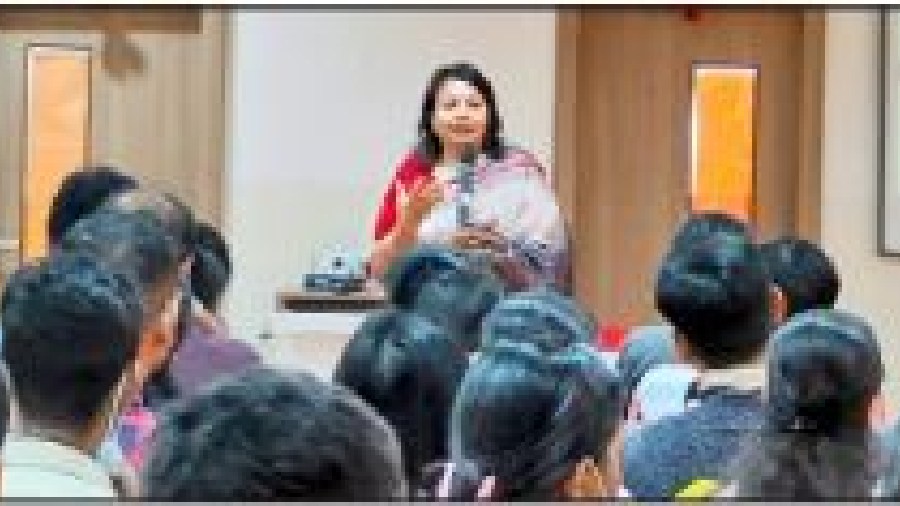- Do not jump, else you will fall, a mother tells her five-year-old
- Do not play in the mud, says another
- A four-year-old carries the same tiffin for three consecutive days, unnoticed by parents that he is not eating it
Parents need to strike a balance between over-parenting and neglecting their children, the head of a school told parents of children in pre-primary classes.
While some parents are overprotective, there are others who ignore their child’s needs. Both can be detrimental for the child, said Suman Sood, director, BD Memorial, and national core committee member of Early Childhood Association, a forum of preschools.
The session on Saturday was attended by about 50 parents, whose children are in the age group of three to five years.
“Parents in their anxiety impede the development of their child by not allowing them to grow in natural surroundings,” said Sood.
There are occasions when parents would ask their children not to jump or play in the mud, fearing they would get hurt or dirty.
“But these activities are essential to grow up. Parents have to keep an eye on them so they are safe, but that does not mean they would become overprotective and not allow the child to do something,” she said.
It is important to allow the child to grow up freely, rather than restricting his or her movements.
In the session, she narrated experiences that teachers in several schools face every day in the age of “Google-searching” parenting.
“Some parents tend to Google-search everything and if they see their child has failed to achieve a milestone, they become over-anxious and disregard the child’s abilities. The over-anxiety undermines the confidence and the self-respect of the child,” she said.
At the same time, there are parents who neglect their children so much so that they are left to themselves.
“Parents have to learn to draw a balance, be involved with the child and listen to the child,” she said.
A term that is most often used by parents is spending “quality time” with children.
“There are some parents who use the term but do not understand what it means,” said. Sitting with the child and speaking on the phone while the child is busy doing something by himself or herself does not amount to spending “quality time”, Sood said.
“Spending quality time means talking to the child, doing an activity together or even reading a book together,” she said.
“There are many things that a child can learn in the kitchen, from the names of vegetables to colours, while they are playing,” said Amita Prasad, director of Indus Valley World School.
